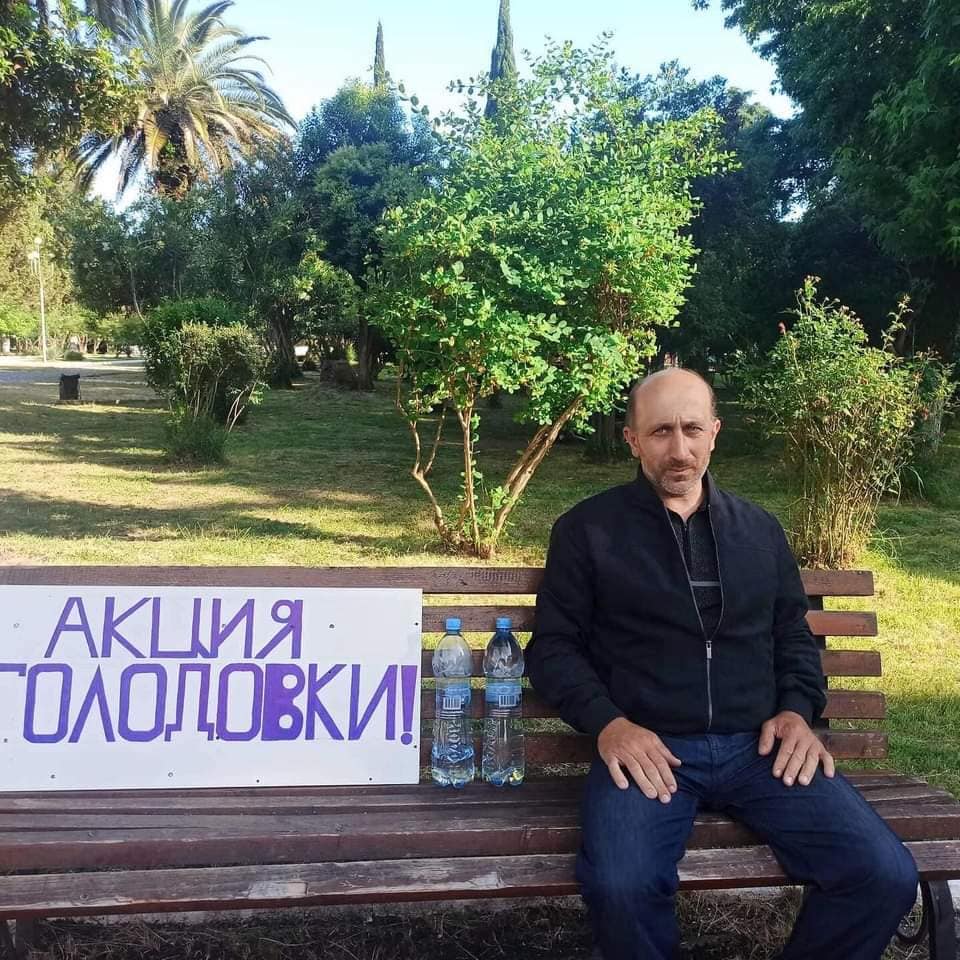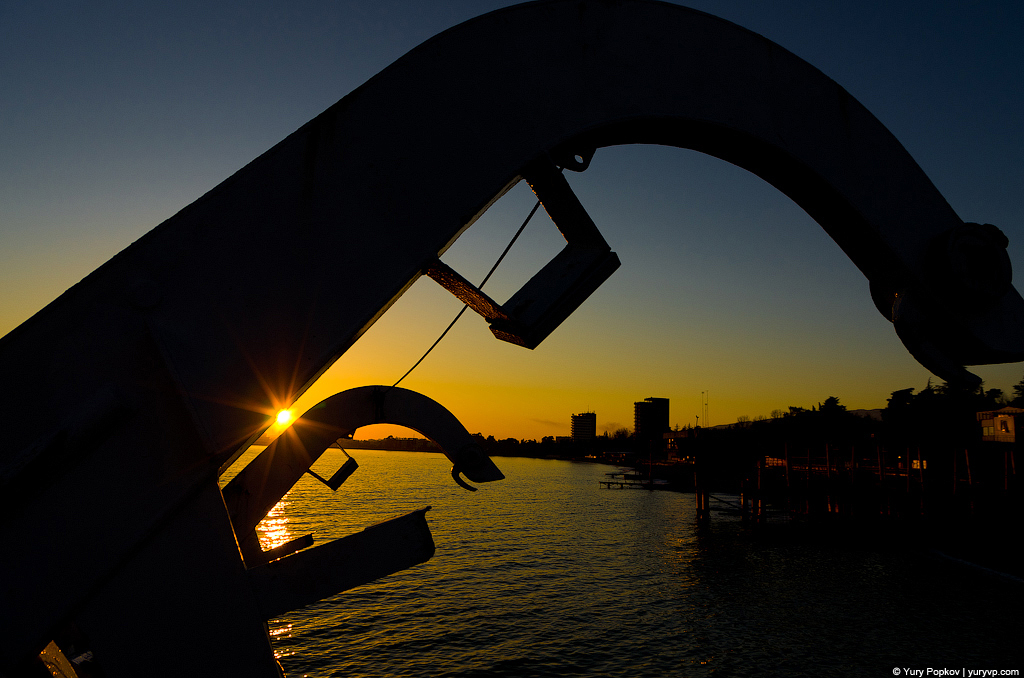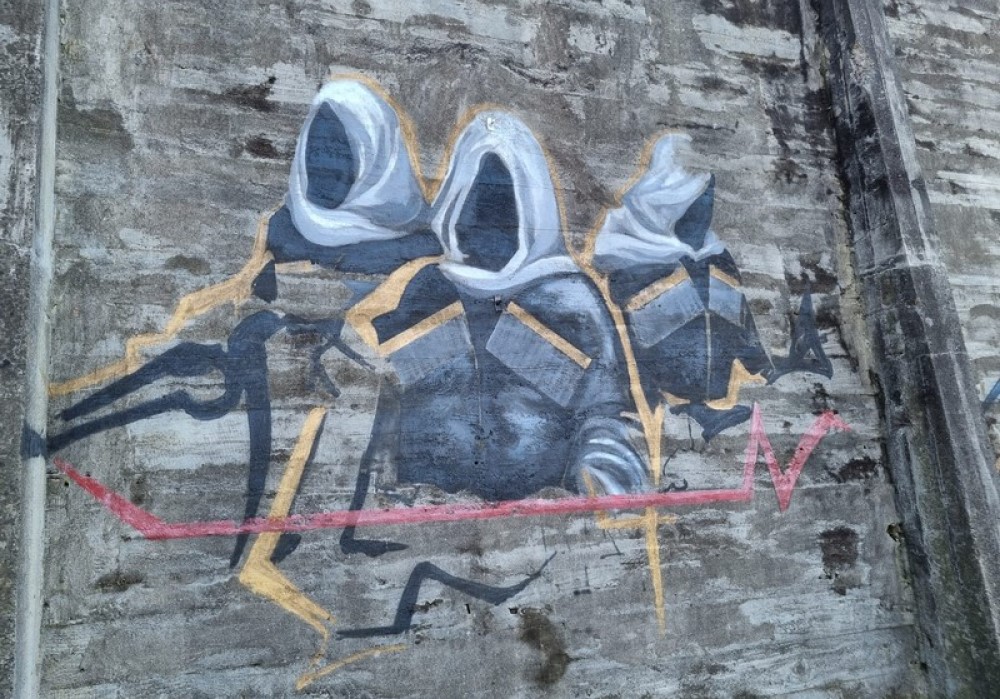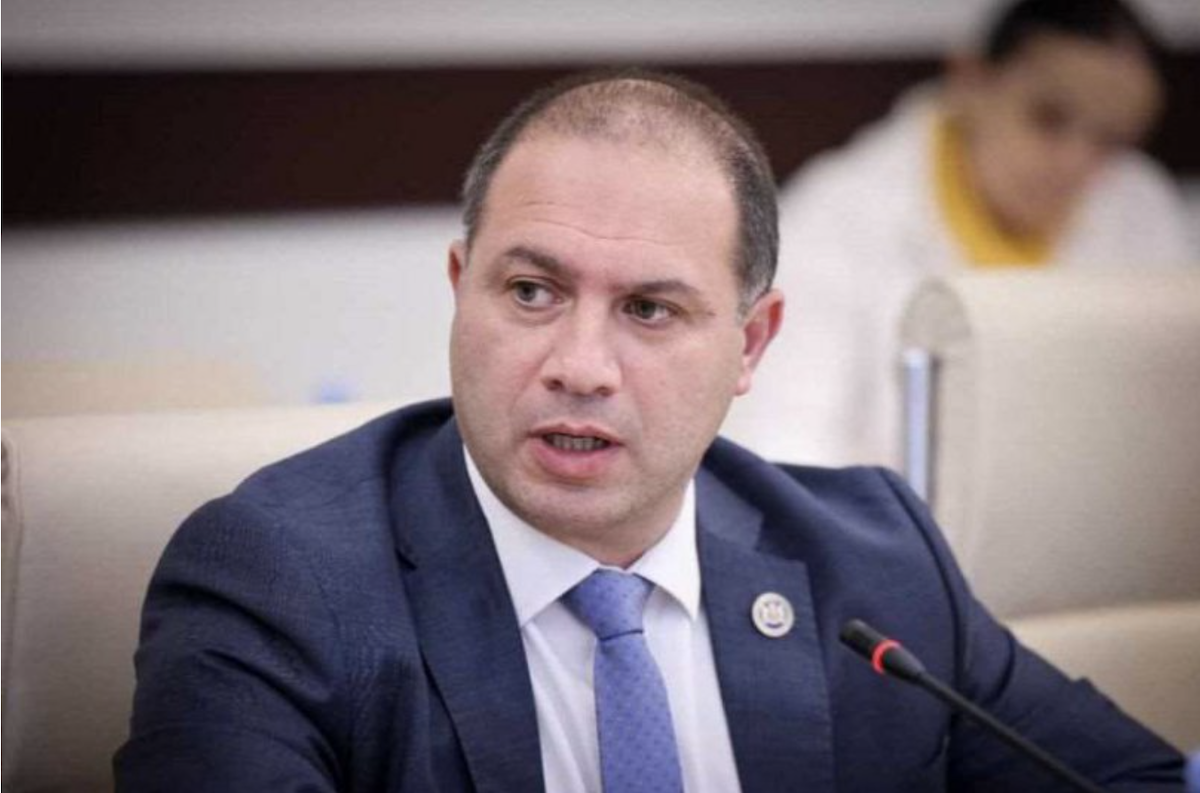Op-ed: Civil protest as a form of democracy in Abkhazia
Democracy and protests in Abkhazia
In Abkhazia, people do not trust the authorities, but the authorities are forced to respond to the protest of even a small group of dissenters. Publicist Dmitry Mushba discusses the specifics form of Abkhaz protests.
Power and protest of one
A resident of Abkhazia, a father of many children Jansuh Adleiba has been carrying out his hunger strike in a tourist tent at the central square in Sukhum for three weeks. He collects the signatures of those who support a vote of no confidence in the government.
This requires 10,000 signatures. Jansuh has already collected 9,000. Vice President Badra Gumba and Prime Minister Alexander Ankvab came to persuade him to stop the hunger strike, but to no avail.
Comment

Publicist Dmitry Mushba on his Facebook page
Who is behind the oil production project in Abkhazia?
“The first and most obvious conclusion is the low level of public confidence in the authorities and, accordingly, in the decisions made by the authorities. This was the case under the last government, the current one and, I guess, it will be the same with the next one.
People change, problems remain.
When the prime minister publicly says that he does not own any business in the country, the protesters respond by saying that they do not believe his words. Here, in my opinion, distrust of the government as a whole is exacerbated by the attitude towards certain individuals in the Cabinet of Ministers.
- Op-ed: Corruption is treason to the motherland – or what the constitution of Abkhazia should be
- Op-ed: Abkhazia does not want to be turned into a copy of another country
- ‘The people need an enemy’ – who’s fighting NGOs in Abkhazia and why
The events of 2014 are still fresh in the memory of the inhabitants of Abkhazia, when the contents of the contracts became public, according to which our government granted the right to produce oil to two companies.
One of them was Rosneft. Later, as far as I know, the current Minister of Economy of Abkhazia [Kristina Ozgan] worked there for a long time.
Our government concluded the second contract with a certain, at that time, unknown company Apsny Oil. No one knew where it came from, it didn’t even have a representative in Abkhazia and had an authorized capital of 10,000 rubles [at today’s exchange rate, this is about $200].
Everyone then tried to understand for why this company received the right to produce oil in Abkhazia. Moreover, all the oil produced under the contract became the property of this company.
It was an absolutely colonial agreement, violating the constitution of Abkhazia, in which the people of Abkhazia acted as Papuans, giving away their natural wealth in exchange for glass.
Then the authorities underestimated the competence and foresight of their people. And thanks to the intervention of civil society, this “deal” was thwarted.
But the details of the deal remained unknown: the terms of the tender, the names of the negotiators and responsible persons.
Another point that hurts the image of the authorities is the open advocacy of oil production by the current prime minister when he was a member of parliament.
Meanwhile, the former MP Almas Dzhapua publicly voiced the version of the involvement of the current prime minister in the same oil case and even turned to the prosecutor’s office with a demand to conduct an audit.
Returning to today’s situation. Many of the people who were directly or indirectly related to the above scheme are in power today.
Apsny Oil has emerged from the mystical fog and is starting to expand into the local fuel market. At the same time, fuel prices are skyrocketing.
About the form of protest
“Each government in Abkhazia, whether it wants it or not, is forced to respond to a civil protest.
The opinion of even a small group of people is heard. Even one person is able to attract the attention of the country’s leadership.
This is our absolute dignity, a sign of a democratic society and a reason for pride. Some would call it a lack of order. But for me, such a mess is better than when people are beaten with batons and put in jail for expressing their opinions.
However, there is an important “but”. It is that the protesters must follow the same rule.
Whether they like the authorities or not, they must learn to conduct a mutually respectful, constructive dialogue and not turn to insults.
This is not just etiquette, it is very important for the future of Abkhazia. So that in 20 and 50 years, as well as centuries ago, the format of direct communication between the authorities and the people will continue to exist. This is what our society largely stands on”.
Toponyms, terminology, views and opinions expressed by the author are theirs alone and do not necessarily reflect the views and opinions of JAMnews or any employees thereof. JAMnews reserves the right to delete comments it considers to be offensive, inflammatory, threatening or otherwise unacceptable





















